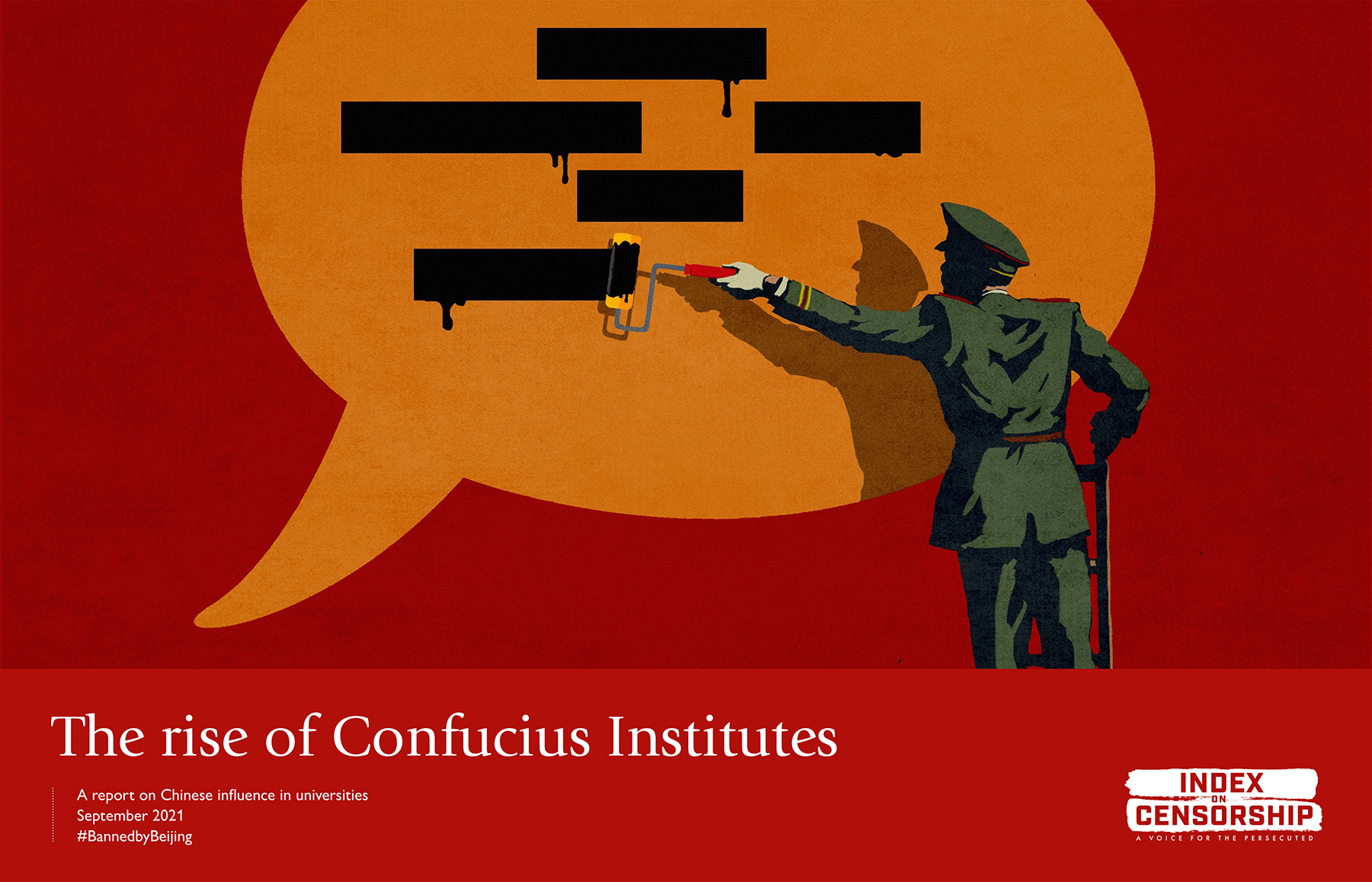“First, we stood up, then we got rich, and now we got strong.” Chinese officials are repeating this slogan over and over, China analyst Mareike Ohlberg recently told the audience at an Index on Censorship event. “Part of being a strong country means being able to influence or determine what people talk about, not just in China but globally.”
Confucius Institutes were established in 2004 with the stated mission of teaching Chinese language and culture abroad and are widely acknowledged as one of the ways China exerts its influence around the world. In 2010, the Confucius Institute headquarters (known as Hanban) received the ‘Chinese Influence the World Award’. “People often ask me about the Confucius Institute’s role in soft power,” said its founder, Xu Lin, at the award ceremony. “We are indeed trying to expand our influence.”
Confucius was a sixth-century philosopher, educator, and quasi-religious figure, who has since come to symbolise peace and harmony. By promoting this image and avoiding any reference to Marxist ideology, a Chinese state institution has made its way onto more 550 university and college campuses, and into 1,172 primary and secondary school classrooms around the world. According to the New York Times, “The carefully selected label [of Confucius Institutes] speaks volumes about the country’s soft-power ambitions.”
In the West, the largest number of Confucius Institutes are found in English-speaking countries. Why? “The Chinese government is minimalist,” Ohlberg replied. “If you have the government in your pocket, why do you need a Confucius Institute?” The UK has approximately 30 Confucius Institutes, five in Scotland. France has 21, Germany has 19, and Italy has 16. There are 103 in the EU.
By operating primarily on campuses, Confucius Institutes are unlike other countries’ cultural organisations, like the British Council, Alliance Française, or Goethe Institutes. Tao Zhang of Nottingham Trent University believes this enables the Chinese authorities “to gain a foot-hold for the exercise of control over the study of China and the Chinese language.”
Confucius Institutes are also unlike European institutes in that they are directly managed by the Chinese government. According to the Netherlands Institute of International Relations, “[t]his offers Confucius Institutes the possibility to unilaterally promote Chinese policy and ideas in a one-sided way, to commit censorship, or to stimulate self-censorship about China among students, pupils and the wider public”.
This report looks the rise of the Institutes and whether those fighting for freedom of expression should be worried.






